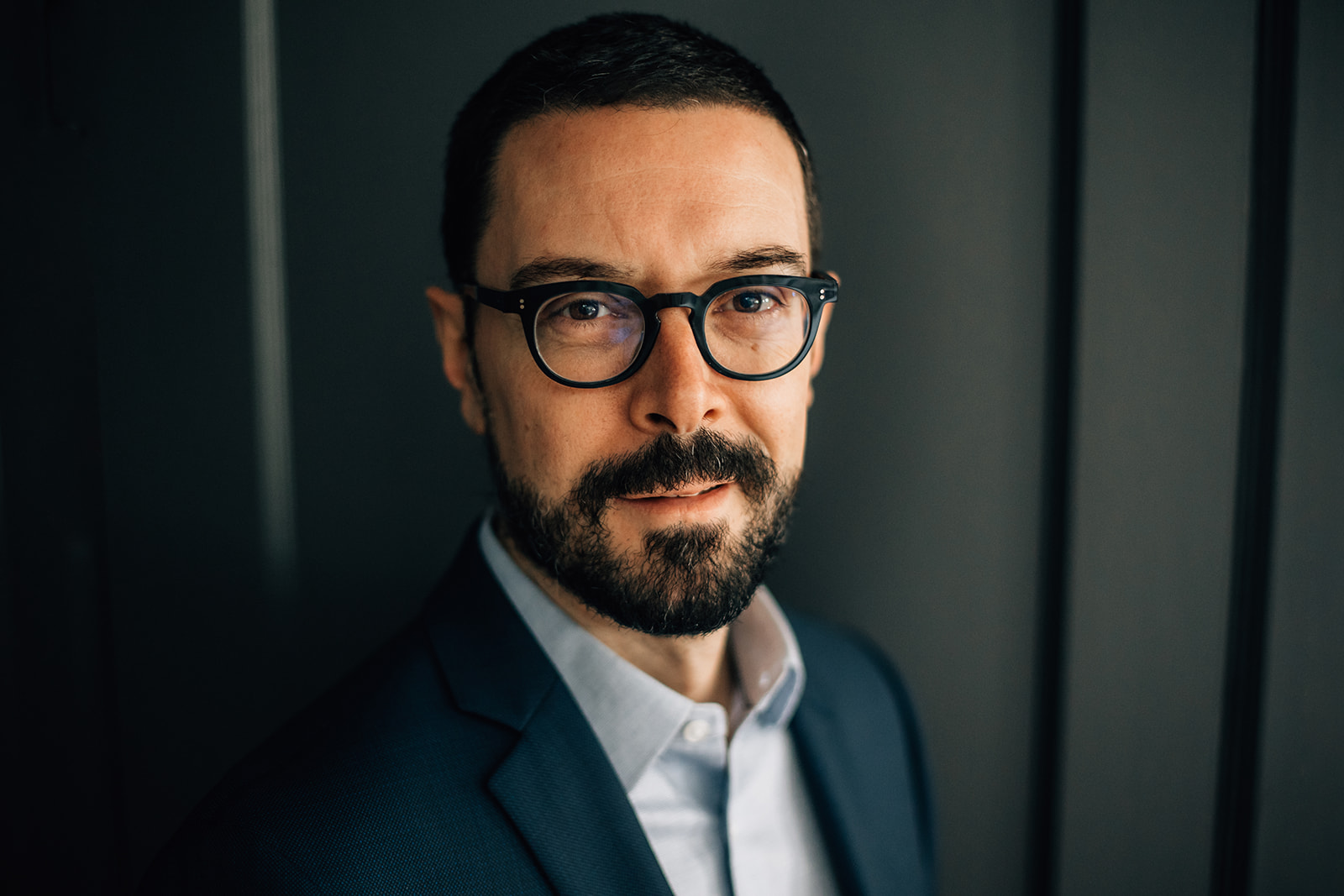Antoine Borrut

Associate Professor, History
Classics
aborrut@umd.edu
3107B Taliaferro Hall
Get Directions
Research Expertise
Medieval History
Middle East
PhD 2007, La Sorbonne
Early Islamic history
Antoine Borrut specializes in early Islamic history and historiography. He is the author of Entre mémoire et pouvoir: l’espace syrien sous les derniers Omeyyades et les premiers Abbassides (v. 72-193/692-809) (Leiden: Brill, 2011; winner of the Islamic Republic of Iran “World book award” and of the Syrian Studies Association book award). The book was translated into English as Between Memory and Power: The Syrian Space under the Late Umayyads and Early Abbasids (c. 72-193/692-809) (Leiden: Brill, 2023). He also edited or co-edited several volumes: Umayyad Legacies: Medieval Memories from Syria to Spain (edited with Paul M. Cobb, Leiden: Brill, 2010), gathering the proceedings of an international conference that he co-organized in Damascus, Syria, in 2006; Écriture de l’histoire et processus de canonisation dans les premiers siècles de l’Islam [History Writing and Canonization Processes in Early Islam], Revue des Mondes Musulmans et de la Méditerranée (REMMM) 129 (Aix-en-Provence: 2011); Le Proche-Orient de Justinien aux Abbassides: peuplement et dynamiques spatiales [The Near East from Justinian to the Abbasids: Settlement and Spatial Dynamics] (edited with M. Debié, A. Papaconstantinou, D. Pieri, and J.-P. Sodini, Turnhout: Brepols, 2012); Christians and Others in the Early Umayyad State (edited with Fred M. Donner, Chicago: The Oriental Institute, 2016); Mers et rivages d'Islam: De l'Atlantique à la Méditerranée (Paris: Presses de La Sorbonne, 2023); Navigating Language in the Early Islamic World: Multilingualism and Language Change in the First Centuries of Islam (Turnhout: Brepols, 2024).
He organized several workshops and conferences in the Middle East, in France and in the US, and published over twenty journal articles and book chapters focusing on topics such as early Islamic Syria and Islamic historiography, including: “Vanishing Syria: Periodization and Power in Early Islam,” Der Islam 91/1 (2014), 37-68; “Remembering Karbalāʾ: The Construction of an Early Islamic Site of Memory,” Jerusalem Studies in Arabic and Islam 42 (2015), 249-82; “The Future of the Past: Historical Writing in Early Islamic Syria and Umayyad Memory,” in A. George and A. Marsham (eds.), Power, Patronage, and Memory in Early Islam: Perspectives on Umayyad Elites (Oxford: Oxford University Press, 2018), 275-300; “Towards an Arabic Cosmopolis: Culture and Power in Early Islam,” in A. Borrut, M. Ceballos, and A. Vacca (eds.), Navigating Language in the Early Islamic World: Multilingualism and Language Change in the First Centuries of Islam (Turnhout: Brepols, 2024), 167-91; “An Islamic Late Antiquity? Problems and Perspectives,” Journal of Late Antique, Islamic and Byzantine Studies (forthcoming).
Borrut serves as co-editor of two book series: Late Antique and Medieval Islamic Near East (LAMINE, Institute for the Study of Ancient Cultures, The University of Chicago), co-edited with Prof. F.M. Donner; and States Before Modernity (Edinburgh UP), co-edited with Profs. Michael Cook and Marie Legendre. He is also an Advisory board member of the Historische Zeitschrift (since 2020) and Associate Review Editor for the American Historical Review (since 2023).
Antoine Borrut has previously taught at the University of Toulouse Le Mirail (France), the University of Saint-Joseph (Beirut, Lebanon), the University of Paris 8 Saint-Denis (France) and directed seminars at the University of Paris 1–La Sorbonne and at the École des Hautes Études en Sciences Sociales (School for Advanced Studies in the Social Sciences). He was also a research fellow of the Institut Français du Proche-Orient (French Institute of the Near East) in Damascus (Syria, 2002-2006); a post-doctoral fellow, at the Centre National de la Recherche Scientifique (French National Center for Scientific Research) in Paris (2007-2008); an invited professor at the École des Hautes Études en Sciences Sociales (EHESS) in Paris (June 2014); and an invited professor at the École Pratique des Hautes Études (EPHE) in Paris (May 2023). In 2016-2017, he was the Patricia Crone member in the School of Historical Studies at the Institute for Advanced Study, Princeton. He was also the recipient of a Graduate School Research and Scholarship Award (RASA, Summer 2018), and of a year-long fellowship from the National Endowment for the Humanities (NEH, FEL-289376-23) in 2023.
Antoine served as Middle East Medievalists’ secretary, the leading professional association in North America in the field of pre-modern Islam, between 2011 and 2017. Between 2011 and 2021 he was also the editor (with Prof. Matthew Gordon) of MEM’s journal, Al-ʿUṣūr al-Wusṭā: The Journal of Middle East Medievalists. He is the co-founder and co-coordinator of the First Millennium Network, a DC-area scholarly initiative aiming to foster interdisciplinary and comparative study of the first millennium of the Common Era, particularly in Western Europe, Byzantium, and the Islamic world. He is the Deputy Director and co-organizer of The Balzan Seminar on the Formation, Maintenance, and Failure of States in the Muslim World before 1800, with Prof. M. Cook (Princeton) and Dr. Marie Legendre (Edinburgh), 2020-2027. He served as Director of Undergraduate Studies of the History Department (2019-2022).
Current project:
Antoine is currently finishing a book manuscript tentatively entitled Aligning Heaven and Earth: Astrology and History in Early Islam. The book focuses on the much-neglected genre of astrological histories and on the role of court astrologers in historical writing in early Islam. This project notably aims to shed a new light on the thorny question of lost sources in early Islamic historiography and on the various forms of historical writing that flourished in Muslim contexts. A preliminary evaluation of the material and a more detailed sense of the project can be found in a programmatic article: “Court Astrologers and Historical Writing in Early Abbasid Baghdad: An Appraisal,” in J. Scheiner et D. Janos (eds.), The Place to Go: Contexts of Learning in Baghdad, 750-1000 CE (Princeton: The Darwin Press, 2014), 455-501.

